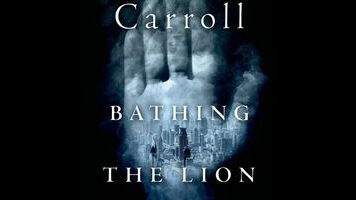The book goes wrong from the beginning, with a tedious introduction to two of the five former mechanics. Vanessa and Dean Corbin are in the midst of a potentially marriage-ending fight, drawn out in detail page after page, yet it has no bearing on the rest of the events. Vanessa is sleeping with Dean’s business partner, Kaspar Benn; this also has no bearing on the narrative. (If these meandering backgrounds are meant to humanize the characters, it’s only because there was so little humanity in them to begin with.) Vanessa’s boss, Jane Claudius, runs a bar in town, where Vanessa sings. A man named Bill Edmonds lives nearby, and his beloved wife has recently died. To call the characters flat would be generous. The most a reader learns about any of the characters are one- or two-word descriptions: Vanessa is an overweight diva (her weight is repeatedly mentioned for reasons unknown), and Dean is merely her husband. Kaspar is a good salesperson; Jane is a lesbian; Bill loved his wife. When the five of them share a dream—a dream that lumbers along for a good bit of the book—it becomes clear they are being called together for some larger cosmic purpose, but the dreamlike clues and mysteries are silly at best and half-assed at worst.
One of the most enjoyable parts of a good fantasy book is the world-building. When a world—however familiar or alien to our own place and time in the universe—has a well-built mythology, a history, an internal logic, it works in tandem with the plot and characters. That being the case, the reader will follow them nearly anywhere. But the world of Bathing The Lion exists on such a thin plane it seems as if Carroll made it up as he went along, using plot devices like time flips and shared memories to avoid any real plot or characterization. The central mysteries—who these five people used to be, and how they can help the current plight of humanity, which we’re told is dire, though we’re never made to feel that urgency—are as tangled as a knotted necklace, and the reader isn’t left with much faith that Carroll can tease apart those knots and reveal the fantastic beauty of his core idea. But Carroll is too caught up in irrelevant details, like a small child playing make-believe. So the mechanics’ food is called udesh, and their language is unintelligible to humans, and a cloud-like thing called an Aurora Cobb can conveniently appear in the middle of living rooms to deliver helpful, if mysterious, tools. Instead of hinting at fully formed worlds, these details weigh down the already leaden text without explaining anything the reader actually wants to know: What do the mechanics do? Why are they important? Why does Muba the red elephant appear in their dreams?
All of this is supported by unnatural dialogue, and a lot of it. Readers looking for a climactic good-versus-evil battle will be disappointed, but neither does Carroll take advantage of all this chatter, which could have framed a cerebral, inward-probing survey of the soul, both human and cosmic. Instead it’s prattle used as meaningless, repetitive exposition. There’s no slow reveal or tantalizing unraveling of a mystery, only dreary explanations that run in uncontrolled circles. Those circles still drift around a fascinating premise, but it’s lost to the ruins of the story. Carroll is certainly a capable enough writer to hold together a story this surreal and this ambitious, but one never feels like he’s in control of the world he’s created. So when that world is threatened by Chaos—who cares? It doesn’t mean anything to anybody, least of all the characters. The only mystery left here is why this book was published at all.

